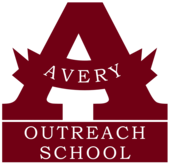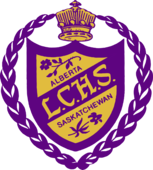Student Services Overview
LPSD supports and encourages the belief that all children have the right to a supportive learning environment, where individual differences and learning needs are respected and accommodated. Our inclusionary education practice is based on the belief that programming and services will be provided in the most appropriate and least restrictive environment.
LPSD strives to promote inclusion within the school community and the community at large. We offer a wide range of programs and support services to meet the needs of all students from pre-Kindergarten to Grade 12.
All services and referrals are coordinated through your neighbourhood school.
Please see below for more information about the services provided in LPSD.
Education Support Teachers (EST) are present at each school. They consult and collaborate with staff regarding students with exceptional learning needs. EST's offer a number of other supports, including the development of Inclusion and Intervention Plans (IIP) and co-ordination of referrals.
Speech-Language Pathologists can help with:
- Saying speech sounds correctly
- Understanding language (vocabulary, basic concepts, grammar)
- Using language (talking in full sentences, using correct grammar, expressing thoughts clearly)
- Augmentative/alternative communication systems for students who cannot speak
- Auditory processing (following directions, auditory memory)
- Stuttering
- Voice problems
- Communication difficulties associated with developmental challenges such as Autism, Down Syndrome, Cerebral Palsy, etc.
Speech-language services are provided through screenings, assessments, consultations, direct and indirect therapy, home programs, referrals to outside agencies, and in-services.
SLP Services Overview
SLP services are provided for students in kindergarten through grade 12 with a focus on early intervention.
Students are referred to the Speech-Language Therapy program in the following ways:
- Kindergarten Speech and Language Screening: All students entering kindergarten are seen by an S-LP to complete a short 10 minute speech-language screening. This screen consists of saying words with specific speech sounds, re-telling a story, explaining vocabulary and understanding basic concepts. The majority of students requiring further assessment in any of these areas are identified through this process.
- Teacher concern: If the teacher has a concern about a student’s communication skills he/she can refer the student for an assessment. Parents must give written consent for their child to be assessed.
- Parental questionnaire/Parent concern: Students attending the pre-kindergarten program are identified primarily through a speech and language questionnaire completed by the parents. If parents of school-age children have concerns about their child’s communication skills they can request that the teacher make a referral to the SLP.
After the assessment the SLP may:
- Dismiss from the caseload if all areas tested are average for their age;
- Put the child on follow-up if the speech and/or language concerns are considered to be age-appropriate;
- Schedule individual or small group sessions at the school with a S-LP Assistant or S-LP; and/or
- Provide home activities for practice; and/or
- Provide recommendations and/or model strategies for school personnel; and/or
- Refer to outside agencies if required.
Hearing:
- Hearing is important to speech and language development as hearing loss can lead to difficulty with saying sounds/words correctly and understanding language.
- As part of the assessment process the S-LP completes a quick hearing screening.
- A teacher or parent can request a hearing screening at any time (no referral required for just a hearing screening).
Occupational Therapists can help with:
- Improving independence with self-care skills, self-help skills, and activities of daily living (ADL’s), such as dressing, feeding, toileting, and grooming and hygiene
- Difficulties with or delayed fine, visual, sensory, and gross motor skills
- Difficulties with or delayed visual processing/perception difficulties
- Understanding sensory modulation/regulation and/or sensory processing/integration difficulties and teaching others about the relationship between sensory and behavior
- Changing or adapting the school environment to meet student needs
- Using assistive technology to improve functioning at school
- Providing appropriate resources or delegating appropriate support or services
- Diverse functional difficulties associated with developmental challenges, such as Autism, Down Syndrome, Cerebral Palsy, etc.
Occupational therapy services are provided through screenings, assessments, consultation, therapy programs, home programs, referrals or recommendations to outside agencies, and in-services.
The role of the Home School Liaison Worker is to build a positive partnership between school and home in order to support children’s development and learning and to link families to more specialized help and support when necessary.
Educational Psychologist Services are contracted for the purpose of assessing the learning needs of a student and providing programming support and recommendations for the school-based team and family.
Contact Us
Please contact your school's Education Support Teacher (EST) to learn more about the referral process for Educational Psychologist Services.
English as an Additional Language Services are provided through the Educational Support teacher at each school.
The School Counsellor’s role is to provide direct counseling services for students with social, emotional, or behavioural concerns as well as consultative support for school staff. Counseling is provided in individual, group, and whole class settings. Consellors may also act as a liaison for partner agencies, students, staff, and parents.
The Attendance Counsellor’s role is to support the school in determining the cause of irregular attendance, provide support for the family in ways to improve school attendance, as well as acting as liaison with the school around the area of attendance.
Please contact your child's school to learn more about School Counsellors and Attendance Counsellors.





























